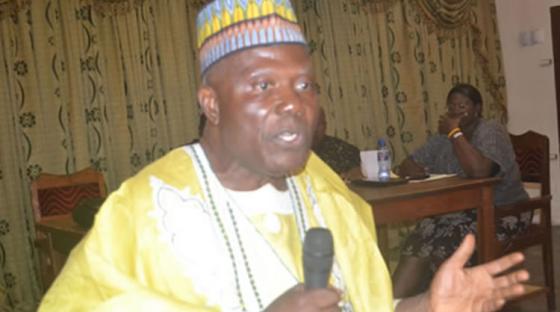In Honor of Professor Dr. Tipoteh

Professor Dr. Togba Nah Tipoteh
By Amos Sawyer
Professor Dr. Togba Nah Tipoteh is a renowned public intellectual and economist who has specialized in addressing challenges of poverty, particularly in Africa. His over 50 years of work in this area demonstrates his abiding commitment to enhancing understandings of the condition of poor people and taking action in assisting them become drivers of their own development processes. He is among the finest examples of public intellectuals who have the extraordinary capacity to blend academic and action research with praxis for the improvement of the human condition. As an academic, he has over the years demonstrated an exceptional ability to analyze complex issues, making them understandable to people with minimal levels of formal education while, at the same time, enriching academic theories with practical on-the-ground experience. As an academic person, I have benefited immensely from his strength in this and many other respects.
As a development practitioner, he has been able to successfully link academic training to development practice and, unlike many academics, he does not seek refuge in the Ivory Tower. He initiates and joins many debates about the political economy of our country, Liberia, and our continent, Africa, on issues ranging from the improvement of small-holder agriculture, to the empowerment of industrial workers, to improvement of financial institutions, to the overall strengthening of our system of governance.
His tenacious insistence on truth-telling and the search for truth has often put him at loggerheads with the powers that be in Liberia. For example, his founding role and leadership of SUSUKUU, ( a local self-help and self-governing development initiative) was much appreciated and enthusiastically embraced by local communities not only in Grand Gedeh and the southeast, but throughout Liberia. However, the heavy hand of an authoritarian government crushed the project but could not uproot the idea as it spread throughout Liberia and became the most viable model of community development.
After completing his PhD in economics in the United States, Professor Dr. Tipoteh served a stint as an expert in the US government’s Anti-Property Program, working under the distinguished Professor Daniel Patrick Moynihan. He was recruited from the Anti-Poverty Program of the United States to serve as Advisor in the office of the Director of the Bureau of the Budget of Liberia. He fell out of favor with the Liberian Government because of his insistence that the budget be used as an instrument to promote development, and not as a laundry list of presidential preferences.
At the University of Liberia where he served a professor of Economics, his insistence on ensuring the relevance of courses to addressing the economic challenges of Liberia, and on the reorganization of the management and direction of the Liberian Economic and Management Research Institute, again put him at loggerheads with the authorities who seemed to be strapped in tired and irrelevant economic and management orthodoxies.
As a teacher, he used everyday expressions and well-known aphorisms from everyday life in Liberia in teaching economic principles and concepts. For example, his popularization of the expression, “monkey work, baboon draw” has been wholly adopted as an economic and political concept in Liberia.
Through his work with industrial workers, and progressive forces in the society, the empowerment of labor was taken to a new level of strengthened union secretariats with enhanced capacities to engage in collective bargaining that resulted in the negotiation of better work conditions for industrial workers, especially in the Liberian American Swedish Mining Company (LAMCO), the Liberian Mining Company (LMC), and Dock Workers Association of Liberia (DOWAL), among others.
With all these accomplishments appreciated, Dr Tipoteh’s signature work remains his leadership role in the founding of the Movement for Justice in Africa (MOJA), which since 1973, continues initiatives to build democratic, accountable, and transparent institutions of governance in Liberia and other parts of Africa. This Pan African organization is linked to sister organizations throughout Africa and to democratic and development organizations worldwide. Under Tipoteh’s leadership it became a major force organizing grassroot movements in several African countries in support of the African liberation struggles.
Dr. Tipoteh is also a cultural icon. The simplicity and authenticity of his African attire—including his popularization of the slippers that bears his name, “The Tipoteh,” his melodious baritone voice and above all, his resumption of use of his ancestral indigenous name have sealed his place as an icon in Liberian culture.
As Dr Tipoteh reaches his 80th birthday, we look back on his illustrious career and contributions with admiration and gratitude, and we appreciate his sacrifices.
I am particularly proud and fortunate that he has been my friend, comrade, and inspiration for the last 50 years.
I believe it is about time that the University of Liberia bestows due recognition on the work of this productive public intellectual. The establishment of a chair in his honor will be an appropriate recognition of his contributions. Thank you, Professor Dr. Tipoteh. HAPPY 80TH BIRTHDAY.
